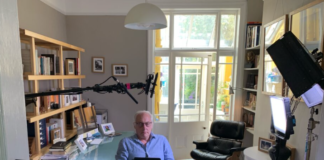- Torode to nowhere part one - 18th July 2025
- Cooking up trouble - 17th July 2025
- Numberless - 16th July 2025

One of the biggest broadcasters in Wales published an adulatory ‘story’ about an independence organisation, and another leading Welsh media organisation talked about its “rise” – yet both failed to challenge membership figures when other statistics have been highly questionable, they did not raise the negative news that it has celebrated a potential attack on a UK military base and said unionists “refuse to integrate”, or that a supporter who claims he invented the controversial group’s ‘app’ wants to talk about banning gay people from Wales, it has emerged.
The ‘report’ about contentious YesCymru (YC) by ITV Cymru Wales’ Ellie Pitt began: “‘Westminster isn’t working for Wales’. These are the five words I have been hearing all week. Over the last few days I have had numerous conversations with recent joiners to the Welsh Independence group YesCymru.”
The item continued: “Anyone who follows the movement’s Twitter account will know just how fast-paced and exponential the membership growth has been, particularly over the last week.

“It took YesCymru almost four years to gain 2000 members, but this week they had 2000 new sign ups in just over 24 hours.”
But nowhere in the article is the body challenged about the huge criticism which has followed close analysis of the official social media account belonging to YC, which reveals it has far fewer ‘likes’ and ‘retweets’ than officials maintain.
Yet ITV Cymru Wales is not alone.
A few days ago the website WalesOnline (whose ‘Editor’ Paul Rowland threatened to sue our own man in charge Phil Parry) published another piece which uncritically put the views of YC, beneath the tendentious headline: “The rise of Yes Cymru and why people are joining in their thousands”.
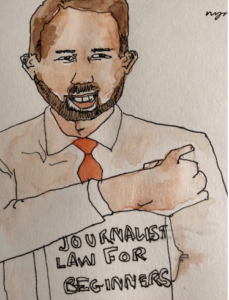 After an accurate satirical piece that we wrote on The Eye about the number of ‘stories’ in WalesOnline concerning the Cardiff bar ‘Coyote Ugly’, Mr Rowland, warned Mr Parry “I am placing it (the satirical piece) in the hands of our lawyers” adding the extraordinary words “satire is no defence against libel”.
After an accurate satirical piece that we wrote on The Eye about the number of ‘stories’ in WalesOnline concerning the Cardiff bar ‘Coyote Ugly’, Mr Rowland, warned Mr Parry “I am placing it (the satirical piece) in the hands of our lawyers” adding the extraordinary words “satire is no defence against libel”.
In fact, satire CAN be a defence against libel if it is wrong – it can be said for example, ‘yes it was inaccurate but it was meant to be funny’. In this case, though, it was accurate as well, so there were TWO defences.
The ‘report’ on his website declared that: “By October, it (YC) had around 8,000 (members). In the past ten days or so that has shot up to 14,000. One thousand new members signed up on Monday alone, with a further thousand on Tuesday, which is why the group thinks something special is happening”.
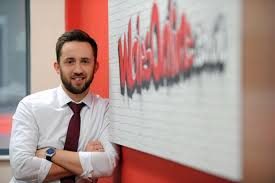
But there are a huge number of controversies which could have been seized on to confront officials of YC.
The Twitter account of one contentious YC message has announced that it had 487 ‘likes’ and 187 ‘retweets’, but when these were counted the figures were actually just 45 and 70 respectively.
The Eye have reported this disturbing information, though, and one critic told us: “What is going on here with YesCymru? If there is such a huge difference with the number of times their message has been liked or retweeted, how is anyone supposed to believe what they say?”.

We also showed how a branch of this Welsh independence movement asked provocatively whether “heroes” will make a stand in carrying out an attack on a UK military base on Anglesey.
The goading comment came on Twitter from YC in Ruthin, and referred to a notorious incident in 1936 when an RAF bombing school was set ablaze at Penyberth on the Llyn peninsula, and founding members of Plaid Cymru (PC) were jailed.
The event has gone down in folklore for Welsh nationalists and a video on YouTube declares: “Penyberth. Plaid Cymru (Welsh nationalist party) one. RAF nil.”
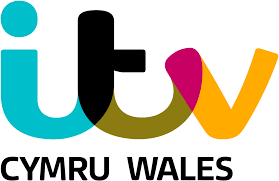
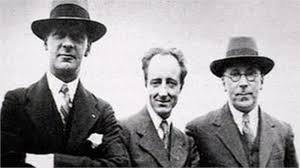
Another branch of YC has said people in “our country” (Wales) refuse to integrate, asking menacingly what should be ‘done’ about Unionists. This extraordinary tweet was put out by YC in the Afan Valley and stated: “These people are in our country, yet refuse to integrate into our local community”.
A major supporter of YC also holds highly dubious views which he has publicised on social media. Mark Wells/Gareth Mark Welsby claims to be the inventor of the YC ‘app’ and has urged holding a debate about banning gay people from Wales.

He wrote in one tweet: “With all this talk about quarantine. I’m serious… Shouldn’t we be discussing banning gay people from Wales. Esp. (gay ex-Welsh rugby international) Gareth Thomas who should resign!! Hiv will spread into Wales’ blood groups inc. Rh+ and our reputation for positive blood ruined. aids infected are negative people”.
Mr Wells/Welsby plainly has an issue with gay people, and tweeted offensive questions to @PrideCymru: “What percent of your membership has HIV AIDS, whats the %difference between your membership with AIDS and the normal %population. HIV is in your group.YES. what research have you? Do you know the %increase in AIDS in wales per year? Please reply” and to @BBCWalesNews “You have a responsibility to prevent the spread of disease and are acting recklessly on social media… encourages Gareth Thomas on gay day”.
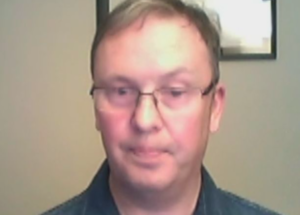
But the man behind YC was not questioned about any of these remarkable events by ITV Cymru Wales’ Ms Pitt, or the WalesOnline reporter.
They simply gave the opinions of the man behind YC.
In the case of the ITV Cymru Wales ‘report’, it was proclaimed: “Siôn Jobbins, Chair of YesCymru (says): ‘Wales isn’t poor, there are poor people here, but the country itself isn’t poor’.
“He also credits Welsh exports of electricity, tidal power generation and strong a food market reputation as sources of fiscal generation.

“’If the argument is you’re too poor to leave, then after 400 years of being part of this union and still being too poor to leave, that to me isn’t a very strong argument for staying in the union’, he continues”.
But the reality is that Wales is very poor indeed as compared with other parts of the UK.

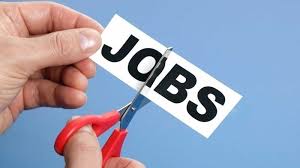 The Welsh economy is still one of the weakest of the UK regions, and to a large extent must rely on UK Government support even after 21 years of devolution.
The Welsh economy is still one of the weakest of the UK regions, and to a large extent must rely on UK Government support even after 21 years of devolution.
Official statistics for regional Gross Value Added (GVA – a measure of economic wealth) demonstrate that recently it had actually DROPPED 2.2 per cent in comparison with the previous year.

Welsh GVA is the lowest of all the UK regions, and Wales has proportionally more public sector jobs than in most other areas, many of which, presumably, would be threatened with independence.
The Welsh Government (WG) has stated: “Over a quarter of the workforce in Wales work for the public sector. There is a significant public sector presence in Wales on a local, national and UK-wide level”
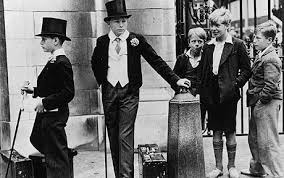
Other key questions about Welsh independence were also not put to the organisation pushing for it by the reporters, and which could have affected, as well, the “fast-paced” membership growth ITV Cymru Wales alluded to.
Among these are: 1. The concept needs to demonstrate beyond reasonable doubt that it would make Wales more democratic and less open to rule by elites. 2. Voters must be convinced that the population would become wealthier. 3. It must be proven that it would make Wales healthier. 4. Voters need to be sure that the majority of Welsh people want it.

Other important questions have yet to be satisfactorily answered by supporters of independence too, which could have been raised by ITV Cymru Wales or WalesOnline but were not.

Past events may also not help the cause of YC and which, again, were not brought up in the ‘stories’ about the organisation’s ‘success’ by ITV Cymru Wales and WalesOnline.
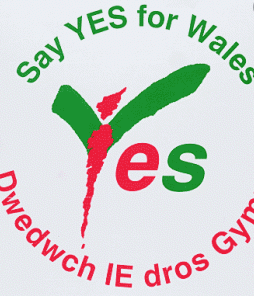

Devolution only just scraped through (the 1997 referendum result was 50.3 per cent in favour when 48.7 per cent were against) and independence is likely to be an even tougher sell, with a strong streak of anti-nationalism in Wales.
Meanwhile a recent ‘news’ piece on the headline-grabbing nationalist website Nation.Cymru (NC) which supports the aims of YC, announced that ‘thousands’ had signed a petition calling for an independence referendum, but the text revealed the actual number was only 2,000.

This figure should be set against a population in Wales of 3.1 million, with most firmly opposed to Welsh independence.
One opinion item on NC began: “It seems the opponents of independence, now running out of arguments, are getting desperate.”.
The results of surveys have had to be ‘spun’ to support the argument for independence. A St David’s Day poll giving the figure of 11 per cent of people in Wales supporting independence, was ‘reported’ in NC as a rise because it represented a four per cent increase on last year.

According to one recent survey it seemed that support for Scottish independence may have reached a record level, but the same cannot be said for Wales and this could have been put to Mr Jobbins but was not.
Research by Ipsos Mori for STV News found that with just six per cent of voters still to make up their minds, 55 per cent backed separation, with 39 per cent in favour of the union when they are included.
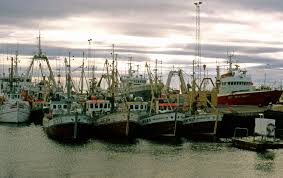
Despite this, even in Scotland there are major issues because senior figures in the Scottish National Party (SNP) were briefed before the 2016 Scottish parliamentary election that CONSISTENT polling of about 60 per cent in favour of independence would indisputably prove that the country had changed its mind since the 2014 referendum.
Yet supporters of Welsh independence can only dream of these kind of figures, and there are other enormous hurdles to clear before their goal can be achieved.

Backers of small independent countries also like to point to Iceland, but this country has a huge and thriving fishing industry which Wales doesn’t have – there isn’t even a coal industry in Wales to speak of now that all the deep mines have closed.
Journalism usually dictates that these kind of facts which apprently do not fit the independence narrative should be put to the man behind the main organisation pushing for it.
 Although not, it seems, for ITV Cymru Wales or WalesOnline…
Although not, it seems, for ITV Cymru Wales or WalesOnline…
Tomorrow – another look at how ITV Cymru Wales astonishingly presents the news. As only we can!
Our Editor Phil Parry’s memories of his extraordinary 37-year award-winning career in journalism (when putting difficult questions were paramount) as he was gripped by the rare disabling condition Hereditary Spastic Paraplegia (HSP), have been released in a major book ‘A GOOD STORY’. Order the book now!








